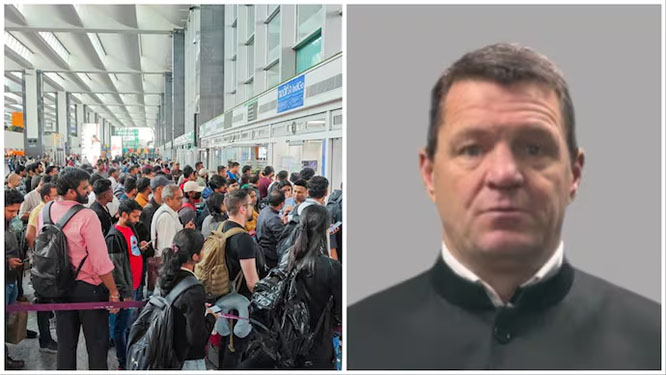In a powerful courtroom exchange, the Supreme Court of India on Tuesday sharply questioned the Centre over controversial changes in the Waqf Amendment Act, especially the provision that allows non-Muslims to be part of the Central Waqf Council.
The hearing was conducted by a bench led by Chief Justice Sanjiv Khanna, and included Justices Sanjay Kumar and KV Viswanathan. The court is currently hearing 73 petitions filed against the amended law, which has stirred protests in several parts of the country.
Key Questions Raised by the Court
1. Should the Petitions Be Shifted to High Courts?
Chief Justice Khanna opened the hearing by asking:
• Should these petitions be heard by a High Court?
• What specific constitutional questions are the petitioners raising?
Petitioners Argue Violation of Religious Freedom
Senior Advocate Kapil Sibal argued that:
• The new law violates Article 26 of the Constitution, which protects the right to manage religious affairs.
• Giving the Collector judicial authority under the law is unconstitutional, since the Collector represents the government.
What Is 'Waqf by User' — And Why It's Controversial
• Sibal explained that ‘Waqf by user’ refers to properties that have long been used for religious or charitable purposes and are thus treated as Waqf, even if no written deed exists.
• The new law removes this recognition if the property is government land or under dispute — which he said undermines centuries of Islamic tradition.
• “If a waqf was created 3,000 years ago, they’ll ask for the deed,” Sibal remarked.
Senior Advocate Abhishek Singhvi added that nearly half of India’s 8 lakh Waqf properties (approx. 4 lakh) are based on this concept.
The Chief Justice acknowledged the complexity, noting:
“We are told the Delhi High Court is built on Waqf land. There is misuse, yes—but there are genuine Waqfs too.”
Major Flashpoint: Inclusion of Non-Muslims in Waqf Council
“Will Muslims Be on Hindu Boards? Say It Openly” — Chief Justice Asks Centre
One of the strongest moments in the hearing came when the court questioned the Centre’s move to allow non-Muslims on the Central Waqf Council.
The Chief Justice asked Solicitor General Tushar Mehta:
“Are you saying you will allow Muslims to be part of Hindu endowment boards? Say it openly.”
This pointed question was aimed at highlighting perceived inconsistencies in how religious communities are treated in administrative roles concerning religious institutions.
Centre Defends the Law
• Solicitor General Tushar Mehta said the law was thoroughly debated and passed in both Houses of Parliament after review by a Joint Parliamentary Committee.
• However, the bench asked:
“If a ‘Waqf by user’ was validated earlier by a court, does the new law now void that?”
The court observed that ancient religious structures often have no documentation:
“You cannot undo something that has stood for centuries.”
Petitioners Request Partial Stay
• The petitioners clarified they are not seeking to block the entire Act, only some controversial provisions.
Concern Over Rising Tensions
The Chief Justice also expressed alarm over violence and tensions triggered by the law.
“It is very disturbing,” he said.
When Mehta said “they think they can pressurize the system,” Sibal responded, “We don’t know who is pressuring whom.”
What Happens Next?
The Supreme Court will continue the hearing tomorrow. The court has emphasized that while there are cases of misuse, many Waqfs are genuine, and religious freedoms must be protected under the Constitution.






Comments
Add new comment